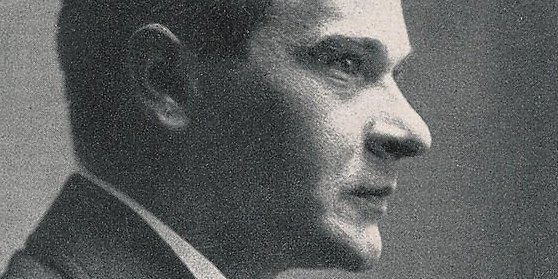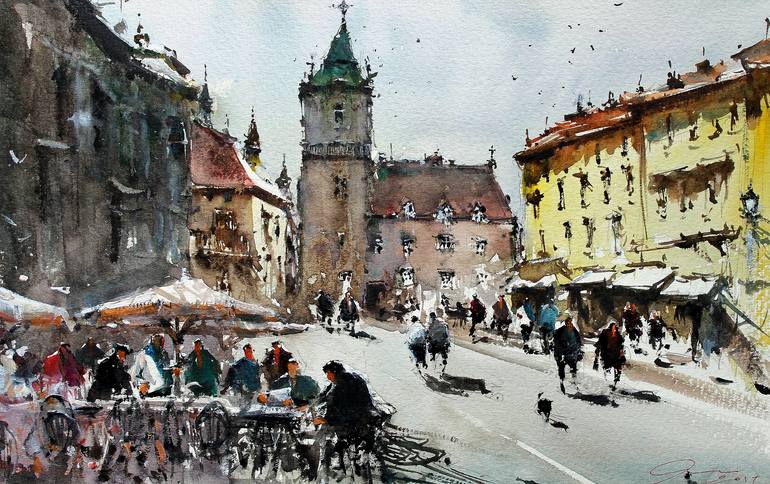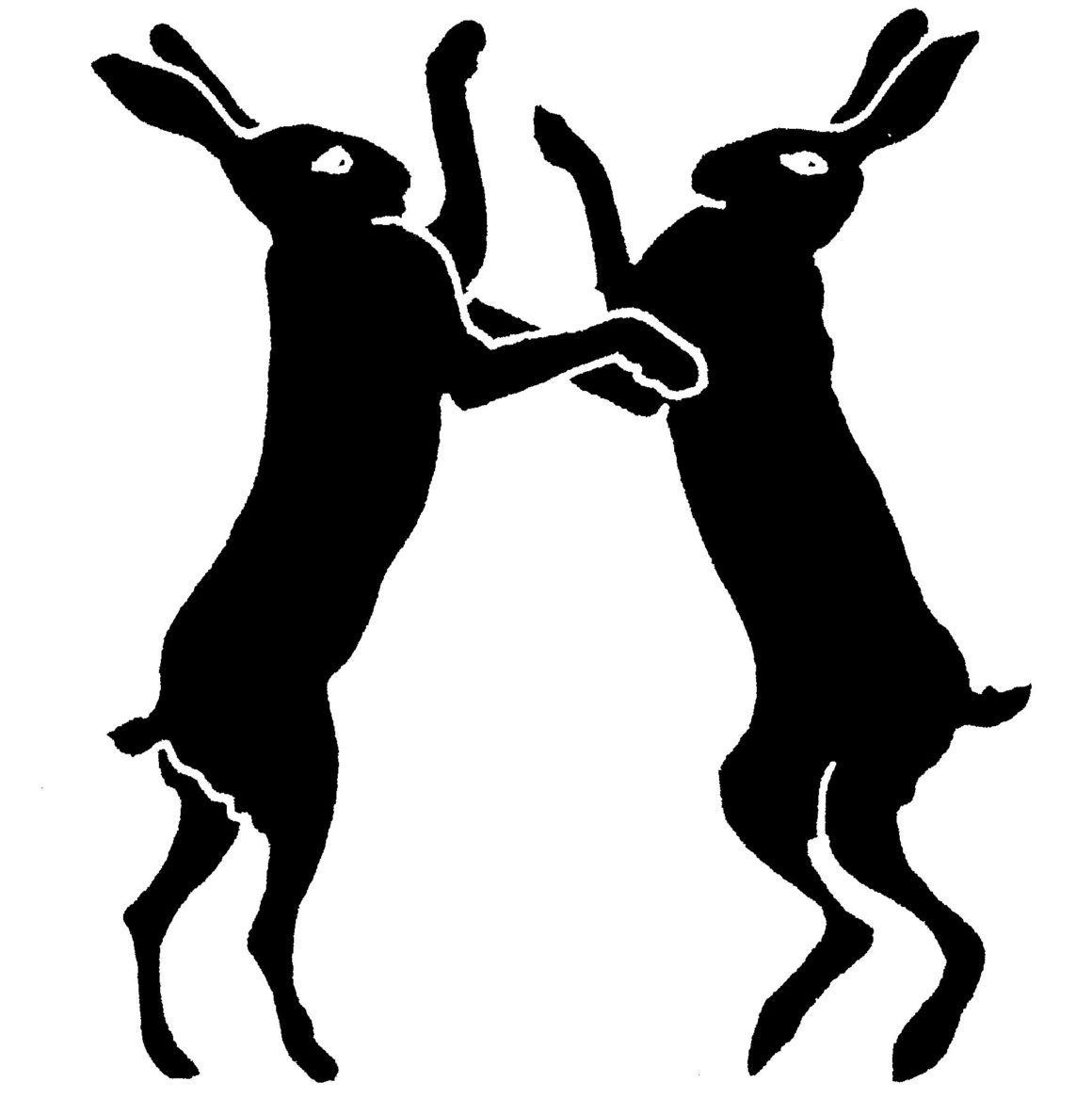In the early 1950s, the American poet James Wright, wandered by mistake into the wrong classroom while studying at the University of Vienna and joined a seminar on the poet Georg Trakl. He describes how the professor leading the seminar read Trakl’s poems slowly, with enormous patience, in the twilit room. The only other participants are described as a few old men who “resembled Bowry bums in America”, but something in the clear, softly spoken reading of the poems, meant that Wright returned to that darkening room “every afternoon for a month, through winter and autumn”. Trakl’s poems have the capacity to draw the reader, even unwillingly, into his own world. They are poems that seem to wait on the reader, inviting reading and re-reading.
Trakl himself belonged to a quite extraordinary extent, to the troubled, extremist and uncompromising undercurrent of artistic expression that characterised the last years of the Austro-Hungarian Empire, the world of Kokoschka and Schönberg’s Second Viennese School. Working as a military pharmacist, he died in 1914 at the age of 27 in the aftermath of Austrian defeat at Grodek following a drug overdose, a probable suicide. There’s something quite distinctive though in Trakl’s poems. In a note to the twenty translations of Trakl poems Wright published with Robert Bly, Wright describes the poems not as objects Trakl constructed, but as “quiet places at the edge of a dark forest where one has to sit still for a very long time and listen carefully.” The poems are a landscape waiting to be explored. Poems that need to be listened to.
A hundred years on from Trakl’s death, the German poet Lutz Seiler, published a first novel, Kruso, that enters in its own way into the atmosphere of Trakl’s poems, the sense of the poems as landscape. Using much of Seiler’s own formative experience as a writer, the novel is set in the last years of the East German Democratic Republic. It follows the experience of a young man, Ed, as he abandons the academic study of Trakl’s poems after the traumatic death of his girlfriend and makes for the island of Hiddensee, just off the north German coast, his mind held captive by a “memory hoard” of German lyric poetry – that of Trakl and others. On Hiddensee, an unaccounted for individual, without the necessary papers, he finds work in a hotel kitchen and meets the central character, Kruso. Something of the island has already appeared as he recites Trakl’s poems to himself. “The sound of each word became associated with the image of a vast, cool landscape that completely captivated Ed; white, brown, blue, an utter mystery”.
In the hotel on Hiddensee, Ed discovers a counter-cultural world of people who can no longer live the ordinary lives demanded of them in East Germany. They seek deliverance, Kruso explains “from a job. From a husband. From a state. From the past.” In Kruso’s vision the island is a place of refuge and he wants to create a community, finding places to stay for the many who have drifted towards the island. In this refuge, recited words have a particular strength, not just for Ed, but for Kruso also. Poetry becomes a kind of resistance and the sound of recited words merges with the noises of the island in Kruso’s explanation, “every noise is a cavern, a language … you live amidst noise. And that’s the only reason you ask what it means: you have to say it all one hundred times to yourself. You can forget what the words mean … You just keep on talking softly to yourself, with your own voice, you knock at the words’ door with your voice”. Kruso and Ed need to find a way to speak their own words, but Kruso is also describing the obsessive, repeated words of Trakl’s poetry – the way it enters its own particular, idiosyncratic language, as Trakl continues, in Kruso’s words, to “knock at the words’ door” with his voice.
There is a great deal of Trakl in Kruso. Trakl himself was possessed by a visionary sense of poetry. As a young man in Salzburg, like others of his age, he read Nietzsche, Dostoyevsky, Baudelaire and Rimbaud. He wrote to his sister Minne of how he was “all living ear”, of how he could listen “to the melodies within me. And my winged eye dreams again its images, which are more beautiful than reality.” There’s much of Trakl too in the way Ed describes the experience of listening to Kruso talk: “it was all attitude, a strange mixture of severity, almost chasteness, and self-control on the one hand, and on the other, resolve, almost fanaticism, and a penchant for the fantastic and the illicit. A chaste fanaticism … a striking blend of innocence and absoluteness”.
In Lutz Seiler’s novel, the visions of Trakl, with their strange listening language, are fully alive to Ed in 1980s East Germany, just as they seemed to be alive to James Wright in a classroom in Vienna in the 1950s. Franz Fühmann, editor of the edition of Trakl’s poems published in East Germany, makes the paradox of the afterlife of Trakl’s poems central to his book length introduction to the poems. It is Fühmann’s edition of Trakl that Seiler credits in the endnotes to Kruso. If there’s something dreamlike in the visionary poetry of Trakl, Fühmann suggests, the experience of reading Trakl is not at all the experience of listening to the boring dream of a stranger. However strange the language, we feel a kind of shock and consternation (betroffenheit) as the poetry seems to concern us – the experience that “tua res agitur” (it concerns you). Trakl’s poems can make a personal connection.
Fühmann’s own sense of connection with Trakl’s poetry dated back to the last days of Nazi Germany. Bringing a collection of Trakl poems home on his last leave as a German soldier, he is startled to discover that his father, a former military pharmacist, had worked alongside Trakl. There are stories he could tell, his father says, about Trakl’s crazy behaviour. “The fellow was mad, no question” and “no pharmacist”. It comes as no surprise that the poem that most possessed Fühmann at this stage was ‘Psalm’, which he knew by heart, reciting it to himself on the way to a Soviet prisoner of war camp, following his unit’s surrender. The poem is filled with a sense of catastrophe. “It is a light, which the wind has blown out” the first line runs in Robert Firmage’s translation. But even in this poem there is the countervailing strangeness of its last line: “God’s golden eyes open silently above the place of skulls”.
As a prisoner in the Soviet Union, Fühmann becomes a convinced communist, inspired by a political education officer, and returns after some years to the new (communist) German Democratic Republic. The visions of Trakl’s poems do not seem to belong to that world, but finding a collection of Trakl’s 1913 Poems in a second-hand bookshop, he “read and read”. The problem was that the poems bore no relation to the kind of poetry he should be reading and promoting: poems that discussed contemporary problems, poems that showed a way out of difficulty, poems by Neruda, Brecht, Mayakovski. Against these, Trakl’s poems could only be seen as decadent and defeatist, a denial of what was for Fühmann, the nobility, truth and goodness of the socialist ideal.
Worse, during this period Fühmann came to learn more about Trakl’s life. “Could it be true” he writes, “as I once he heard, that Trakl had defiled his own sister?” Without question, his sister Grete, who features in a number of the poems, is associated with passionate feeling. There is what critics call an “incest motif” in the poetry. There is no conclusive evidence of any physical relationship, but Fühmann notes that Grete had seemed to indicate to Ficker, his editor, that there was. Ficker also records a conversation with Trakl in which he had said that he had no right to withdraw himself from hell. Trakl’s sense of guilt was real and intractable. At the very least he shared in, and probably supported, his sister’s drug addiction. Another profoundly fragile individual, she committed suicide in 1917. For Fühmann, the inescapable darkness of Trakl’s “unliveable life” was something that had to be accepted, the price Trakl had to pay to create his work, his vision. In the end the poetry wins out against all reservations and resistance, continuing to speak to him through his own alcoholic dark days in East Germany. When his edition of Trakl’s poems was eventually published in East Germany, he writes “the struggle had ended … Trakl’s poetry had triumphed”. The connection the poems made was too deep, too personal to be ignored, despite his own attempts through the years to put the poems aside once and for all.
A quite different approach was taken by the philosopher Martin Heidegger in the 1940s, who made Trakl’s poetry, along with that of Hölderlin, central to the linguistic turn of his post-war philosophy. Kruso’s sense of listening to language, “knocking on the door” of words, is very much that of the later Heidegger. Language – poetic language at least – is primary, and the world of things is somehow called out of language. A truth, a reality, the world of Hiddensee, of Salzburg, emerges from visionary language. Heidegger’s essay ‘On Language’ concludes with a reading of Trakl’s poem ‘A Winter Evening’, but Heidegger writes that, “Who the author is remains unimportant … the poem can deny the poet’s person and name”. Heidegger wishes to keep the visionary sensibility he finds in Trakl’s poetry, but writes out the life of Trakl himself.
The implications of Heidegger’s reading of Trakl becomes clear almost incidentally in a second essay he wrote, devoted entirely to Trakl’s poems: ‘Language in the poem’. Heidegger’s opposition of poetic language – the language of being – to Western ways of thinking becomes a reading of the poem ‘In Darkness’ as a call “that the right race may come to be, and to speak the flame of the spirit into gentleness”. “Is this dreamy romanticism” Heidegger asks, “at the fringe of the technically-economically oriented world of modern mass existence?”. There is much of Kruso’s romanticism here. The romanticism that insists that a counter-rational, counter-enlightenment community can be built, whether in opposition to the then communist east, or Heidegger’s generalised western Europe.
It’s likely that Trakl shared something of this vision. Like many in the early years of the twentieth century, he had a sense of the decline of the West. The imagery in many of the poems centres around a fall from a Christian, vaguely medieval past. That Heidegger should underwrite and mystify this vision while remaining silent about the Nazi past, his own included, seems now to be unforgiveable. That opposition to the East German state might follow Kruso and become an opposition to all bureaucratic and technocratic modernity, is more understandable. The final sections of Lutz Seiler’s novel, suggest though that Kruso’s vision, the romantic vision of Hiddensee, never quite corresponded to the reality. Kruso’s sanity also comes into question. The disaffected who make their way to Hiddensee are transient outsiders, many interested only in the possibility of making the dangerous sea crossing to Denmark in the west. Kruso is obsessed with the idea that no one should attempt to leave, and that his counter-cultural community should be preserved on the island. The community falls apart though as the borders between eastern Europe and the west open and the refugees begin to depart. The novel concludes with Ed tracing the fate of the person who stayed in his room at the hotel before him and died in the attempted sea crossing. Many attempted the crossing from Hiddensee in reality, and many died in the attempt. Lutz Seiler’s novel is finally concerned with them.
Both Heidegger and the fictional Kruso share a personal sense that the vision found in Trakl’s poetry could become the expression of a new kind of community, a new reality. The poems live on those terms. It’s not Heidegger, though, but Rilke, the most enduring of the poets of the Habsburg era, who has the closest understanding of the power of Trakl’s vision to possess the imagination of the reader. In letters written to Ficker in 1915, he records the impact of Trakl’s poetry in a way which recalls Fühmann’s shock and consternation. He has read the poems he says “overwhelmed, astonished, wondering and perplexed”. He also notes that the “rising and fading tones are irretrievably singular, like the circumstances from which a dream might arise”, but Rilke is clear though that these are dreams, visions, which cannot be entered. The poems present “vistas and insights” which the reader experiences “as though pressed, an exile, against a pane of glass: for Trakl’s poetry passes as in mirror images and fills its entire space, which cannot be entered, like the space in a mirror”.
Trakl’s landscapes are inner landscapes, and Rilke’s encounter with them forms part of his own transition from his earlier object poetry, in which he sought to find his poetic self in the contemplation of removed, isolated objects and places, to the poetry of the Duino Elegies in which the words of his poems open towards an interior, mirror landscape. In this, the Trakl of 1912-14 was his precursor.
Reading Trakl with this in mind, the quite extraordinary extent to which Trakl’s real, historical landscape is translated into inner, visionary poetry, becomes clear. The elderberry, nut tree and hyacinth that recur obsessively through the poems belong to the garden of his youth, as does the fountain and courtyard outside his house. When Fühmann was able to visit Salzburg in the 1970s, he says he sees Trakl’s key colours, again obsessively repeated, of green, white, hyacinth blue and gold. He climbs the narrow steps of the Kapuzinberg and encounters elements of the poem ‘Sebastian Dreaming’, the figures of the stations of the cross (not just metaphors for suffering), a recessed alcove with its fence. These elements, like the shepherds, inns, lakes and rivers of still largely rural Austria, that feature repeatedly in other poems, all become aspects of Trakl’s dream vision, juxtaposed without explanation, frequently becoming subject to an unearthly silence, sometimes a synaesthesia in which colours or flowers sound to the speaker.
Trakl’s poetry, however, is in no way expansive and confessional. One of the key experiences of reading it is the sense that Trakl himself remains silent. Ficker described Trakl as, in general, “silent, taciturn, though in no way aloof” and wrote of a manner of speaking which was mild, “as though circling around an unutterable muteness”. This carries through into the restrained, spare expression of the poems, their lack of explanation. Heidegger also notes the importance of the stranger and of the already departed. There are displaced figures such as Sebastian dreaming, the “unborn” innocent, Kasper Hauser, silent monks, the mysterious Helian and the child Elis (already dead). Trakl returns to these figures who are absent from the world and themselves remain speechless. There’s a recurrent desire to be subsumed into their otherworldly innocence – Trakl described himself to Ficker as “half born”.
Reading Trakl is to be drawn into this intense, inward desire for innocence, for otherworldly silence. A desire which means that Trakl seems to absent himself from the poems, leaving the reader finally alone, listening and returning to the voice of the poem.
A note on sources
Lutz Seiler’s Kruso was published in 2014, the translation by Tess Lewis published by Scribe in 2017. James Wright and Robert Bly’s Twenty Poems of Georg Trakl was published in 1961 by the Sixties Press. Franz Fühmann’s Vor Feuerschlünden: Erfahrung mit Georg Trakls Gedicht was published in the German Democratic Republic by Hinstorff in 1982 (translations my own). It has recently been translated as At the Burning Abyss: Experiencing the Georg Trakl Poem by Seagull Books (October 2017). Quotations from Trakl’s letters and recorded conversations are either from Fühmann or Robert Firmage, Song of the Departed: Selected Poems of Georg Trakl (Copper Canyon, 2012). Translations of Heidegger’s ‘On Language’ and ‘Language in the Poem: a Discussion on Georg Trakl’s Poetic Work’ can be found in the collections, Poetry, Language, Thought and On the Way to Language.





